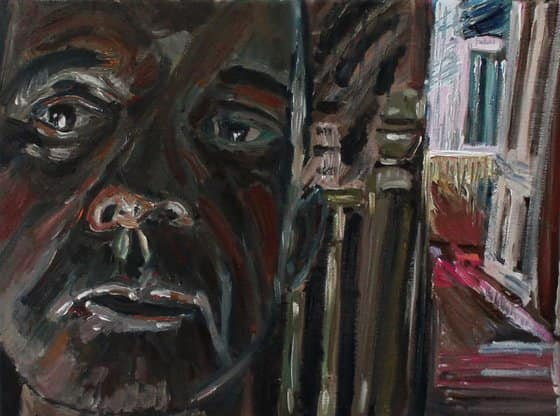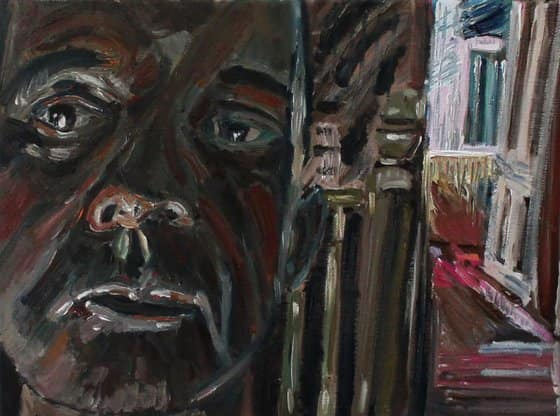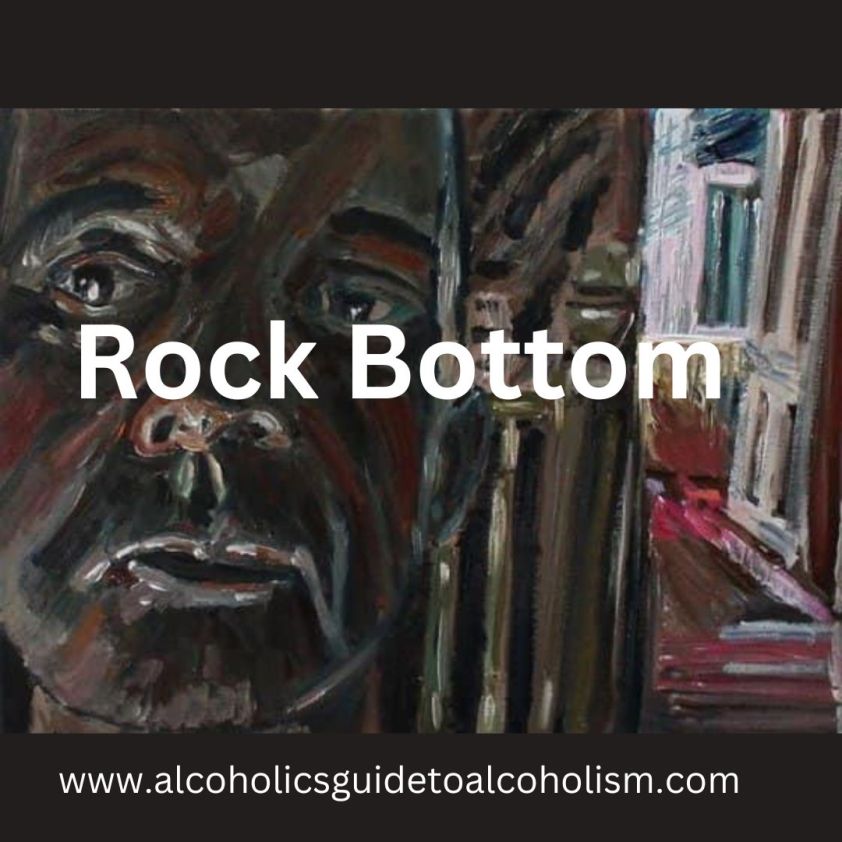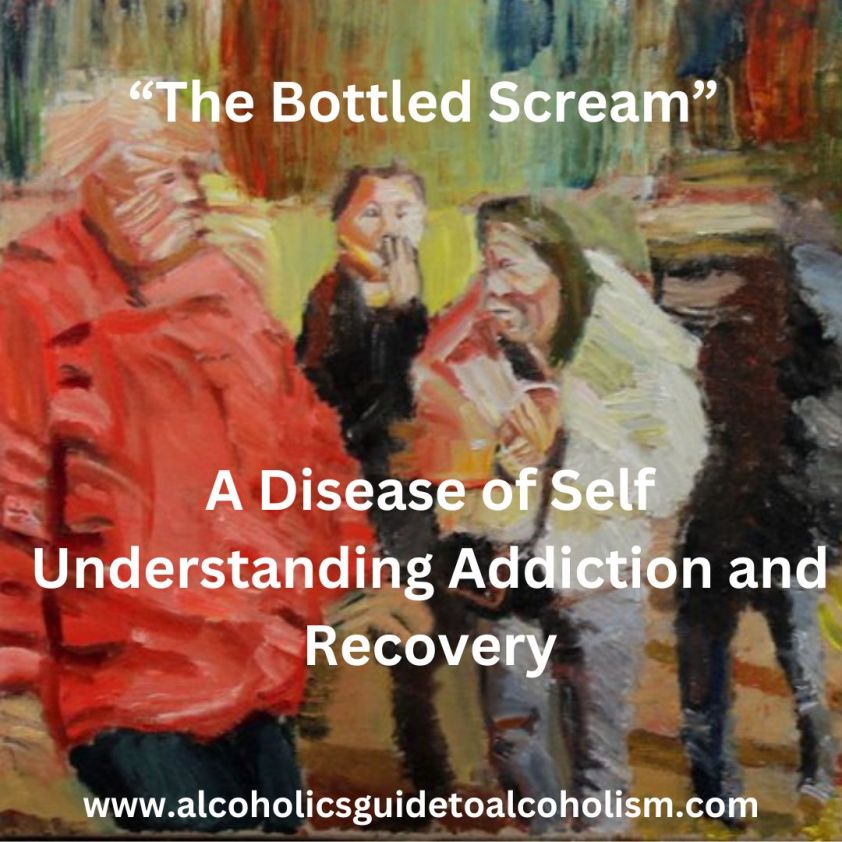
Below is my feature article for Keys to Recovery Newspaper.
This article address how 12 step recovery treats the emotional disorder which underpins the “spiritual malady” that drives alcoholism.
http://www.keystorecoverynewspaper.com/
“My alcoholism almost killed me. It was only when my wife withdrew from me after she had exhausted all possibilities to try and help me—taking me to mental health professionals but with no success—that I asked her for the first time for help and she took me to my first AA meeting and booked me into a treatment center.
The professionals would treat me for something other than alcoholism, wondering if my drinking was linked to some other mental health issue. They all failed to see that the mental health issue that I was suffering from, and that was going to kill me quicker than any other possible disorder, was my chronic alcoholism.
They had very little idea of what alcoholism is. Most people in the world do not know what alcoholism or addiction is. They do not believe it is a condition that worsens and progresses neurobiologically in the brain over time.
Many in recovery are not completely sure what they suffer from and many coming into recovery are put off by the imprecise definitions they are met with. We still use a definition of alcoholism from 1935. It works—and that is the main thing—in treating alcoholism. It saved my life and gave me all I have but it does not explain all I suffer from and all that has threatened my recovery via relapse.
The professionals thought that by treating my other conditions it would alleviate the severity of my drinking.
They seemed to have little idea that my drinking was also partly the result of my brain having been changed due to the chronically high consumption of alcohol and other drugs.
They appeared to have little awareness that copious amounts of neurotoxic substances alter and damage the brain. They seemed to be of the idea that my ‘alcohol abuse’ was the result of something else, although 50-60 % of alcoholism is genetically inherited, making it one of the most genetically inherited conditions there is! I am
not saying that there aren’t other conditions, co-occurring conditions, which have contributed to the severity of my
alcoholism and addiction, like various tributaries running
into the same river.
In fact, I suffer from other mental conditions that existed
prior to and still run alongside my alcoholism and addiction.
Namely, complex PTSD and attachment trauma.
Mental health professionals do not seem to successfully
treat the most urgent problem very well, the alcoholism
and addiction. They seem, like most of the world I believe,
to be unaware that addiction and alcoholism become
permanently ingrained in the brain.
“Once an alcoholic always an alcoholic,” I have found to be true and science, in particular, neuroscience, which is the study of the brain,
shows this too. Once you have become a pickled gherkin
you will never be a cucumber again!
Science is catching up with what AA and other 12 step
groups and treatment centers have known for decades.
It has caught up with the idea that the condition of addiction
is ‘progressive.’ It only gets worse, not better, over
time. However, it can be managed and treated.
People in recovery are doing this, sometimes very successfully and
have lives they could not have dreamt of, regardless of still having this permanent and ongoing condition of the brain.
I believe my condition of alcoholism and addiction is ingrained in various parts of the brain that are connected to self-regulation such as emotion, motivation, memory and so on. When we are in emotional distress, our addiction becomes activated and acts like a ‘parasite’ on these parts of the brain that deal with ‘self.’ Distress activates addiction like a parasite—via our genes—which activates, for example, our memories to remember the good times when we drank, or activates our motivation to want more, more, more.
It also activates our emotional networks to make us feel bad or our self-schema, to think we are worthless.
This is addiction and it reflects how our brains became conditioned by addiction. Addiction has shaped our brains to do its bidding. Our addiction became a compulsion, which is an automatic behavior to relieve distress. It was not the substance that did the ‘thinking’ at the end of our addiction—it was distress. The thrill had long gone!
In early recovery, in particular, it is distress that leads us back.
We have to find a way of dealing with this distress in recovery.
My way was the 12 step program of recovery.
The longer we are in recovery, the more subtle the addictive voice becomes. Sometimes it lives on via ‘workaholism’ or too much food, porn, shopping, eating. All activated by emotional distress acting like a parasite on the brain networks regulating our ‘self.’
One solution is thus to get out of ‘self,’ to get out of having this distress. This is at the heart of 12 step recovery. I suggest getting out of self is done via a number of methods in 12 step recovery
such as: helping others, prayer, meditation.
There are also some ways of getting out of self which address the condition that seems to underlie our ‘spiritual malady,’ what I
call my ‘emotional disease’ of alcoholism.
In recovery, I have been given a toolkit to deal with me, ‘my self’—a toolkit I never had before. I was never taught by my family how to cope with me, how to deal with my emotions. My emotions have always disturbed me and I have always sought to escape them, to control them externally, via external means such as sweets, cigarettes, girls, and gambling, sport, deviant behavior and
then, in my mid-teens, via drink, drugs, and sex.
I was always fixing my feelings via something outside of myself
and the substituting of negative emotion with positive feelings of pleasure. I had this constant feeling of emotional distress even then, because of not being able to deal with my emotions, which would always impulsively lead me to fix my feelings
I have always had a limited ability to identify, label, process and regulate my emotions. I do not really have the fully developed brain networks that deal with controlling my own emotions.
Emotions can be undifferentiated and distressing to me as I am not sure what I am feeling and this creates an unpleasant feeling I try to escape. I acted out on this through impulsive and then, later in life,
compulsive behaviors. This is also called alexithymia, the impaired ability to identify, label and process emotion.
This alexithymia can be influenced by growing up in a traumatic or abusive environment or it can be genetically inherited
by a combination of both.
The vast majority of alcoholics have alexithymia.
My spiritual malady, as mentioned in 12 step recovery, has always been there too. In fact, I think my spiritual malady grows out of my emotional disease. If I can’t control my emotions it is then difficult
to live life on life’s terms. When I came into recovery I was shocked by how I could not control, or even read, my emotions.
In AA they say that people stay at the same emotional age as when they started drinking. I used to think this about me too but now I am not of this view. I think I never had the ability to read my emotions and tell another person how I feel. Fortunately, much of the program of 12 step recovery can help with this alexithymia
as well as the resultant spiritual malady.
Although I would also recommend outside professional help for co-occurring disorders, as I have benefited from outside therapeutic help for complex PTSD. My co-occurring conditions have threatened
my recovery and needed to be addressed as a result.
The 12 steps clear away the ‘wreckage of the past’ and allow us to make amends for past wrongs which is a massive exercise
in emotion regulation of past events. It emotionally relieves us of the distress we carried from our past lives. It allows us to
forgive which also helps in processing the emotions attached to the wrongs we experienced. It gives us a clear slate emotionally.
Step Ten allows us to regulate emotions by keeping this slate clean on a daily basis.
Another excellent technique for regulating emotion is sharing at meetings which allow us to talk through emotional issues—often to emotional resolution—to trust in a Higher Power and accepting that
things are as they should be (not how we want them to be!) All these are vital to recovery.
‘Wanting’ brings a whole host of emotional difficulties such as distress, selfishness, greed, gluttony, as well as other negative emotions/sins/shortcomings as it activates the ‘parasite’ that feeds on motivation and wanting.
Another very important technique in 12 step recovery is the use of a sponsor.
I will now explain how talking to a sponsor on a regular basis helps perfectly with treating our alexithymia.
In alexithymia, we have only developed two levels out of five in the development of our ability to process emotion.
According to one model, these levels include: awareness of physical
sensations, sensorimotor reflexive (level 1); sensorimotor action tendencies (level 2); single emotions (level 3); blends of emotions (level 4); and the capacity to appreciate complexity in the experiences of self and others, (level 5).
Those with alexithymia are usually stuck on the first two basic levels, being moved into action by emotion, which ties in with me as a young person being compelled to fix unpleasant feelings via action, externally. This was partly because I could not get to level three, identifying emotion—not to mention blends of emotions—and certainly not their complexity.
The magic of recovery is that ringing my sponsor and discussing my feelings allows me to process all these levels. Levels I cannot always do by myself!
When we ring our sponsor it is usually because we have a resentment against someone or something and it has resulted in our thinking going awry. We are usually in emotional distress. When talking to our sponsor, we can often identify an emotion (level
3) or character defects like shame, pride or guilt.
We can explore what we actually feel and this can often be linked to other emotions and feelings we have had about related themes and incidents—incidents we were not aware of as related (level 4).
We can also discuss the other person’s perspective and increase our understanding of self and also of others (level 5). This can help with other matters like empathy and forgiveness.
When we process emotion properly, the events that inspired distress are lodged away in our memory banks and are no longer swirling around in our minds. Most of the 12 step program of recovery is about doing this: processing our troublesome emotions and filing away their related memories (cleaning the slate).
Talking to a sponsor is also like a step 5 or a daily step 10.
Gratitude also helps in the regulation of emotion. We are happy with what we have, not distressed by what we want.
Practically all 12 step recovery is a program for growing emotionally, changing our emotional brains in the process.
Belonging to a 12 step group helps with attachment issues, increasing our sense of belonging, which relieves distress and
helps to regulate our emotions too.
In spiritual terms, 12 step recovery ‘restores us to sanity’ by spiritual and psychological processes which allow us to fully process emotion. It is the emotional distress which activates our spiritual malady and addictive behavior.
Treating this distress via effective processing of emotion allows us to root out the cause of all our troubles.”
About the author
Paul Henry lives in Wales, UK and has been in recovery for over 12 years. He completed various degrees in recovery, including
one in Psychology which led to him being a Ph.D. candidate in Neuroscience.
Paul is a published author in an academic journal and writes for ‘Inside the Alcoholic Brain’ and ‘The Alcoholic’s Guide to Alcoholism.’
He writes about how the brain is altered prior to, and after, addictive behavior; how this alteration remains in recovery and how it needs to be managed by spiritual practices, one day at the time.
For more information
please visit these websites: https://insidethealcoholicbrain.com/
& https://alcoholicsguidetoalcoholism.com/














